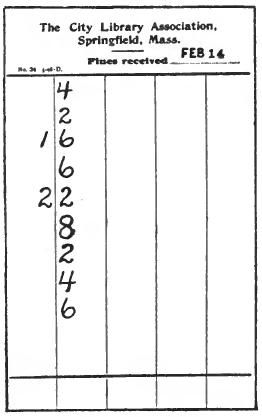Library fines have their place. In theory, they keep people returning materials on time, they provide a little money to the library, and they give a little punishment.
But the key word there is “little.”
I was absolutely horrified last week to read about a student in high school who had lost a book in KINDERGARTEN and never allowed to check out another book from her schools!
KINDERGARTEN!!!!!!!!!!!!!!!!!!!
The extent I was enraged over that can hardly be quantified here! (I kicked my desk, for some perspective.)
First thought: This is beyond horrible. (I struggle here to keep the profanity from my typing – and would like you to know this is a struggle!) If you have a library that stops kids from checking out books if they lose one – talk to me. I will work on a way to get the book replaced and fines cleared up.
We do no one any benefits from banning them from checking out books!
But, there are too many stereotypical library people. Crabby Little Old Ladies (regardless of age and gender) – people who relish the joy of telling people No! You Can’t! Stop!
These people are an embarrassment to our profession. They are a disgrace. They are a stain on the joy of sharing information that is the foundation of our profession. If I have the chance to spit on their shoes – I will.
We are a profession of Yes! How can I help you! Here – please take these materials! What else do you need?
So we are sharing an excerpt from AASL, to give you some ideas about your school’s library fines. If you want to think through it all, please call us! We can help you set up a policy that will help to work through the different needs you need to serve.
By Mica Johnson
A couple of blog posts ago I wrote
that I was evaluating my stance on school library fines. Since then my
co-librarian has warmed up to the idea, and we’ve been planning how we
are going to phase out fines. I also started working with the ALA
working group Resolution on Monetary Library Fines as a Form of Social Justice.
This ALA appointment comes at an
interesting time for me since my co-librarian and I are actively
assessing our stance on fines and trying to figure out the best way to
implement this new policy. Fortunately, our administration is supportive
and even though I don’t have the answers to all of his questions, our
principal is willing to let us figure it out.
For librarians who are thinking about
ditching fines, what kinds of information/resources do you think would
be most beneficial to your efforts? For instance, our principal asked us
to write a proposal and policy on removing fines. I would be very
interested to read some library fine removal policies already in place.
Something else I think would be
useful for me is seeing specific examples of fine removal in school
libraries comparable to the size and population of our school library.
Our school is fairly large, and solutions/strategies that work in
smaller schools don’t always work for us. Being able to see what fine
removal looks like in real life for a wide variety of libraries could
help with troubleshooting and the practical application of a fine
removal policy.
For those who aren’t really sold on
the idea of ending library fines, what would you need in order to
reassess your stance? My co-librarian wasn’t excited about ending fines.
She felt like late fines motivated students to return books, and
removing fines removed an opportunity for real-world lessons about
accountability. What changed her mind was the combination of Googling
some articles and the student who told us he wasn’t going to check out a
book because he was worried about having late fines and getting in
trouble with his parents.
Our administration didn’t need much
convincing, but we did utilize information we found in several articles
documenting success with ending library fines. Having easily accessible
information and resources on ending library fines in public and school
libraries could make it easier to increase enthusiasm for removing
library fines.
For anyone who hasn’t really
considered removing library fines, now could be the right time to
reevaluate your library’s policy. My co-librarian and I never thought
about ending fines until one day we realized our main reason for having
late fines was that’s how it had always been done. We’d allowed
ourselves to become stuck in a pattern, supporting a practice we had
never questioned. Once we understood it as an accessibility issue, we
began to dissect our fine/fees policy and assess the reasoning behind
it.
Goals for the Resolution on Monetary
Library Fines as a Form of Social Justice working group include
creating/curating resources and information supporting and encouraging
libraries to end library fines. As school librarians/stakeholders, what
kinds of resources would help you support ending library fines–specific
school library examples, stats, an infographic? Have any thoughts for or
against ending library fines? I’m curious to know how other school
librarians feel about ending library fines.






